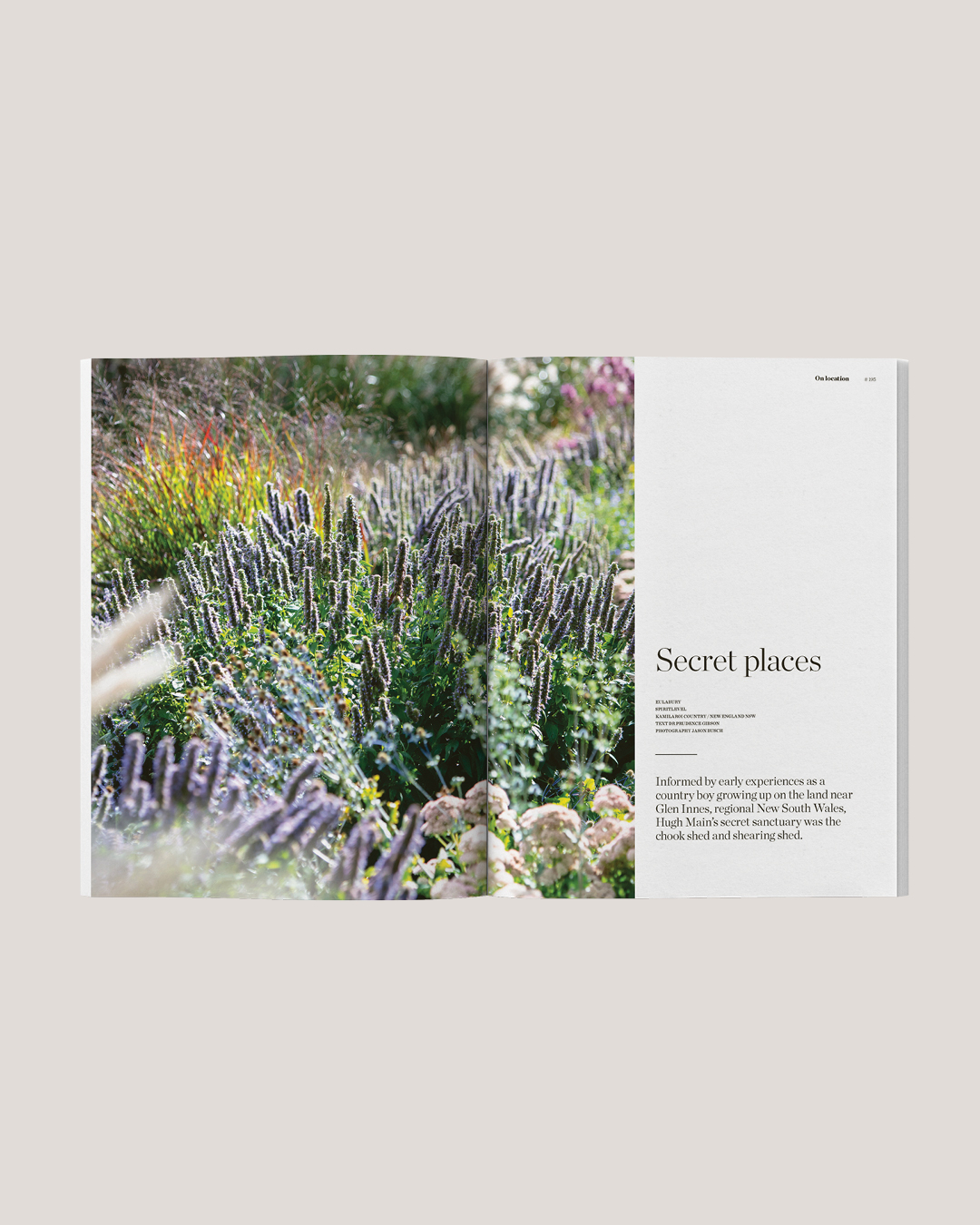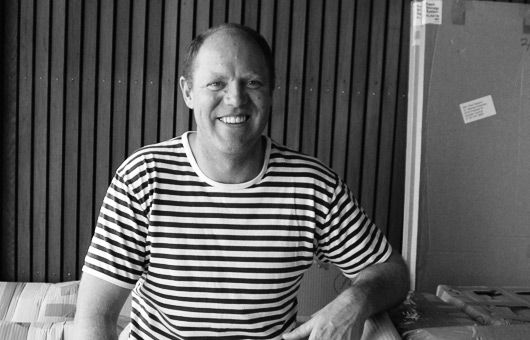A small, colourful stool and companion outdoor table are the latest pieces to join the IMO stable. Sam Haughton, director of the furniture design company, developed the lightweight powder coated aluminium stool for Fisher & Paykel’s Social Kitchen: a pop-up exhibition held in Auckland earlier in the year. It was created to accompany his new Fiord table, a refectory-style outdoor dining table, designed for informal outdoor eating.
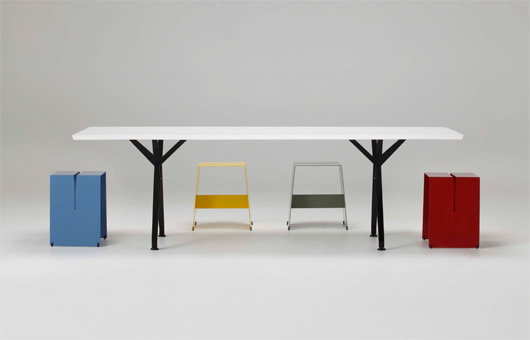
“We wanted to create a flexible space around the table, so people could move around easily and create any variety of seating layouts,” explains Haughton. “So we placed the legs centrally, and designed them to be structurally stable but sculptural in form. The light weight stools are then easily manoeuvred, and can be easily stacked for storage.”
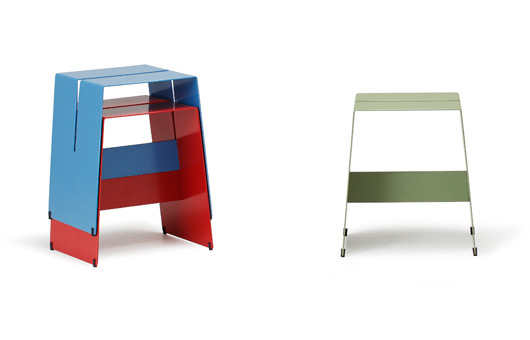
The playful stool was a fun excursion from the company’s commercial focus, and just won him Home NZ magazine’s Furniture Design Award.
Haughton sees design as an evolution, an ongoing process of research and development. “It takes a long time to develop a product; the user research, prototyping, drawing component parts, setting up tooling, testing and delivering it to market. It’s a demanding, comprehensive process but the only way to create enduring designs.”
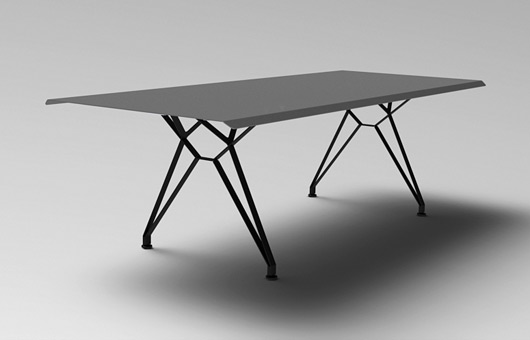
He opened his first workshop in 1992, with an interest in using materials in a way that they might be mass-produced. He began designing and manufacturing one-off furniture commissions, then over time developed a standard product range, outsourcing the manufacturing as his business grew.
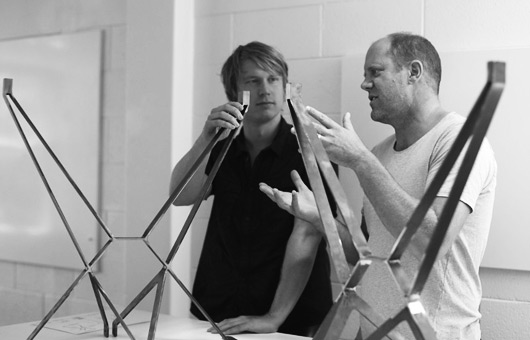
A self-taught designer, his designs speak of a utilitarian approach, with a knowledge of materials and a commitment to the collaboration between designers and manufacturers.
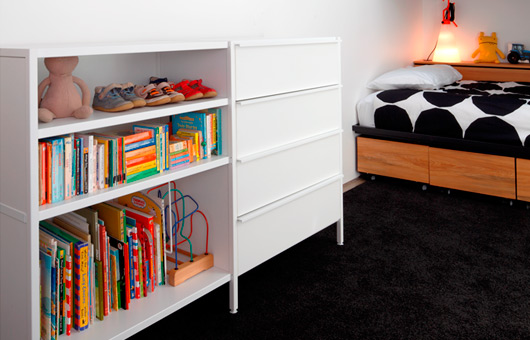
‘KASE’ storage unit
He established the Auckland-based design company IMO in 2004. In his role as Creative Director he brings to the team an extensive knowledge of materials and production and a perceptiveness derived not just from experience but by being involved in all aspects of a product.
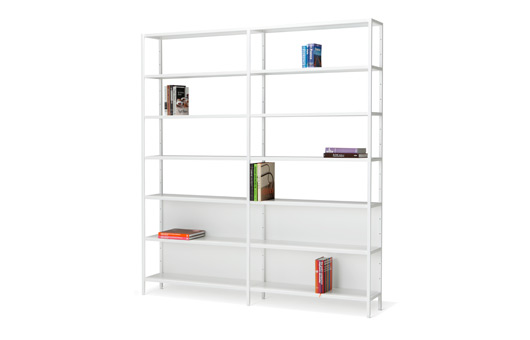
‘KASE’ Bookshelf
“You’re led by your product, so you need to know how it’s tracking. The process doesn’t stop once the product goes to market, there are always ways to refine a product with the on going information we gain from our installers and clients. Being hands on is a critical part of development. I’m often found underneath a desk or storage system doing an install on site — it’s where so much of the learning happens.”
Although there is a recognisable aesthetic that runs through his designs, he is more concerned with how people interact with furniture and the way in which a product is detailed. He is known to perfect hidden connections in his ongoing pursuit to improve a products quality and function. An often lengthy and difficult development process will appear effortless in a finished piece of his furniture.
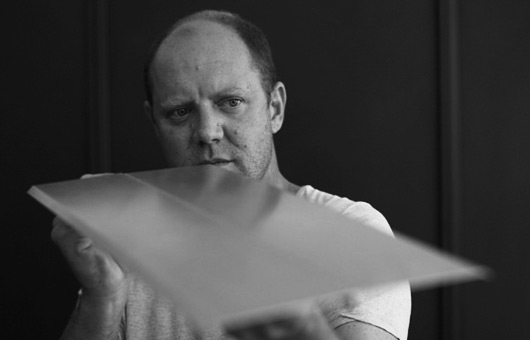
“The moment you add furniture into a room it influences that environment — that effect has to be a positive one, not just for a year or two but over the lifetime of its use. Designs that are overly concerned with aesthetics usually fail long-term. In today’s global culture of disposable mass-consumerism, the value of long lasting design has become even more essential – we should all aspire to develop product that lasts a lifetime.”
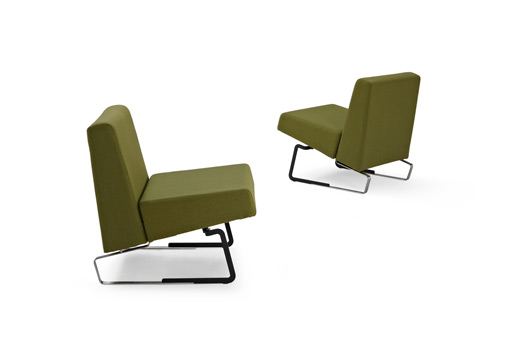
IMO
imo.co.nz
